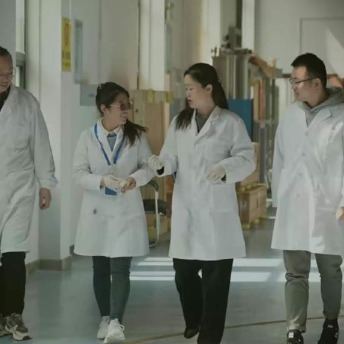


A leading female biomedical scientist hopes more women will choose to do what they like in life, rather than fall into the traditional roles they have been expected to play in the past.
Zhang Xin, vice-director and principal investigator at the High Magnetic Field Laboratory of the Hefei Institutes of Physical Science, told China Daily recently that she had noted far fewer women than men in research institutes.
"For example, for us here at our institute, about 20 percent of scientists are women at a certain level — say, associate professor level — but at my level it's less than 10 percent," Zhang said.
Born in 1979 and a returnee from overseas, Zhang has been focusing on research involving magnetic fields and how to use them to improve human health.
"Take the magnetic resonance imaging machine, for example. It has a very strong magnet inside and can help doctors see inside your body. It is the most common high magnetic field found in everyday life," said Zhang, who has been working in Hefei, Anhui province, since 2012.
She had majored in biomedicine through her school years at home and abroad.
"I chose medicine because my grandpa was a very excellent doctor and my parents hoped that I could be a doctor too," Zhang said.
She accomplished that, just not in the medical field. Instead, she earned a PhD, saying it's reasonable that one's initial inspiration might come from the family, but a person should not always follow a path designed by other people.
Zhang, who has a daughter and a son, said it's regrettable that most women spend much of their lives taking care of their family, including the elderly.
"In China, pressure is coming from society but also from women themselves," she said.
One of Zhang's students, in the acknowledgements in a doctoral dissertation recently, praised her as a woman who could balance work and family well, while maximizing the time she spends on other things.
"I try to take advantage of all the help I can get," Zhang said, noting that she gets a lot from her parents-in-law.
Her husband, who is also her colleague at the physical science institutes in Hefei, also spends as much time as possible with their kids, Zhang said. She encourages more fathers to do the same.
After first characterizing her husband's child care as "help", Zhang paused and corrected herself. She said he is not so much helping her as simply doing what every father should do.
If you have any problems with this article, please contact us at app@chinadaily.com.cn and we'll immediately get back to you.